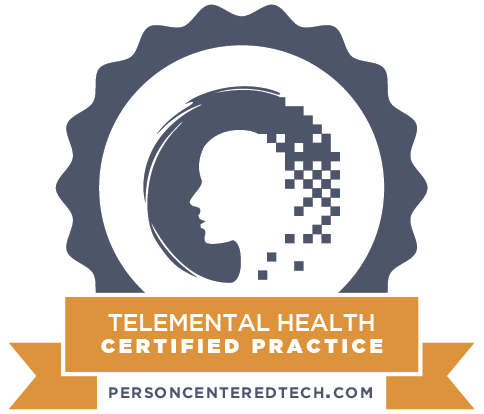The Migraine-Depression Connection
By Cindy Kuzma. Contributed by Cristine Toel, MA, LAC, Staff Therapist
This content is selected and managed by the Healthgrades editorial staff and is brought to you by an advertising sponsor.
Depression
The throbbing, pulsing pain of regular migraines can rob you of so much—including your happiness. Research increasingly suggests a link between migraines and depression. Fortunately, medications and lifestyle changes that help one condition may have benefits for both.
Pain May Provoke Sadness
One recent study suggests women with migraines have close to a 50% greater risk for depression than those without severe headache. Another found that as many as 4 in 10 people with chronic migraines develop the condition.
It’s little wonder that frequent migraines dampen your mood. After all, coping with intense, long-lasting pain makes it difficult to stay positive. Migraines can cause you to alter your routine, and they can prevent you from enjoying your normal activities. Anxiety about your migraines can make matters worse. You may even begin to cancel plans in advance, fearing the onset of the next attack.
Genes, Brain Biology Play a Role
But there’s more to the story than meets the eye. For one thing, doctors suspect the association doesn’t just work in one way. People with depression also appear to be at higher risk of developing migraines.
Scientists continue to unravel the reasons. Migraines and depression may share similar underlying biological mechanisms. For instance, genetics could leave you prone to the effects of both conditions, while shifting levels of hormones or neurotransmitters could spark their onset.
Another possibility: An additional external factor may trigger depression and migraines. One recent study suggests chronic stress could link the two. Constant pressure actually changes the way your brain functions, producing both penetrating pain and persistent sadness.
Smart Strategies Ease Aches and Depression
If you have chronic migraines, work with your doctor on developing a plan for controlling them. Keeping your pain in check may also boost your mood.
Antidepressant medications, including Elavil (amitriptyline) and Effexor (venlafaxine), alter your brain chemicals in a way that both improves your mood and reduces your risk for migraine pain. Your doctor may recommend that you take them before a migraine begins to prevent or lessen its effects.
Exercising and eating a nutritious diet can also ward off both head pain and depression. And relaxation techniques can help you cope with stress before it becomes a bigger burden. You can practice some, like deep breathing and meditation, on your own. Others, like biofeedback, are easier to do with a professional’s help. Biofeedback helps you learn to control such functions as blood pressure and pain response.
PCS utilizes the help of an experienced and knowledgeable psychiatrist on staff, Dr. Sheldon Wagman, DO, FACN, DLFAPA as well as a Medical Director, Dr. Richard Isenberg. If you have any questions or need to schedule an appointment with a psychiatrist or medical doctor for an evaluation, give us a call at 480-947-5739.
By Brian T. Case Ph.D.
PCS Staff Therapist
Many couples struggle with sexual dissatisfaction that stems in part from one partner desiring sex more or less frequently than the other. In the past, this problem has primarily been identified as “sexual dysfunction” in one of the two partners. The most common conclusion, and therefore diagnosis, has been to see the partner desiring sex less often as suffering from “hypoactive sexual desire” or low sex drive. Within heterosexual couples, this is especially true when the partner desiring sex less often is female, and the one wanting sex more often is male. On occasion, the partner desiring sex more often will be identified as having “too strong or frequent” a sex drive, clinically referred to as “hyperactive sexual desire” and more commonly referred to as being “oversexed” or in the recent past as “nymphomania”.
Although a number of individual/personal factors can contribute to sexually “shutting-down” or compulsively engaging in sexual behaviors, for many couples it is a relational dynamic that contributes to not “being on the same page” sexually. For this reason, the concept of a “sexual desire discrepancy” is particularly important, as it allows for the “couple” and the interactions between them to be the focus of treatment versus one individual being the identified patient.
I have found that when a couple comes in for sex therapy dealing with problems of desire, they have often already concluded that one of the two is the problem and want him or her to “be fixed”. After the bumpy transition to a new way of looking at things, most couples find it very enlightening, refreshing and hopeful to see that they are both contributing to the problem, and more importantly, can both contribute to the healing of the sexual relationship and a return to (or in some cases first experience of) sexual satisfaction and fulfillment.
The most common relational dynamic contributing to sexual desire discrepancy problems is polarization. Polarization occurs when small differences between two people in an intimate relationship become amplified as each person reacts to the other. One such polarization is often referred to as the “distancer-pursuer dynamic”. This dynamic often begins with the differences between the two partners being a source of attraction. The one takes more initiative and reaches out to the other, finding pleasure in helping to “open the other one up”. Likewise, the pursued partner loves feeling desired, and being able to respond in kind.
Over time, however, the distancer can feel overwhelmed by the “neediness” of the other person, while the pursuer can feel frustrated and afraid by the lack of openness and reciprocity in the relationship. While the one withdraws in reactivity, the other increases the intensity of pursuit. This polarization can continue to the point where ““you always” and “you never” become common phrases thrown out in arguments. Within the sexual relationship, that often sounds like “he always wants sex, it drives me crazy” and “she is so sexually repressed, please fix her”. What appears to be a problem of either raging or dormant hormones is far too often the result of a frustrating yet readily reversible cycle of polarized reactivity within the relationship.
Indeed, there is hope and healing for couples stuck in this cycle! Even when only one partner chooses to make a shift, the dynamic can be positively impacted. When both work to stay in a more balanced place, even better! As the person withholding or avoiding sexual intimacy steps up to the plate and initiates more, and the pursuer patiently backs off, a couple is often able to find a workable balance. If the polarization is successfully decreased and yet the differences in sexual desire still exist, each individual may need to look at intrapersonal factors that may be keeping them from more often being on the same page sexually. Indeed, by working through both the relational dynamic of polarization and one’s own baggage resulting in repressing and/or over-relying on sex, a fulfilling sexual relationship can emerge.
Brian T. Case, Ph.D.
Licensed Marriage & Family Therapist, PCS Staff Therapist
Psychological Counseling Services, Ltd.
480-947-5739
Arizona Study: Traumatic Brain Injury May Suppress Immune System, Increase Pain Sensitivity
By Andrew Bernier. Contributed by Cristine Toel, MA, LAC, Staff Therapist
Those who have had a traumatic brain injury (TBI) often live with pain and sickness in other parts of the body. Now, Arizona research has connected how a single TBI may suppress a person’s whole immune system and give them pain long after their injury.
Following TBI, researchers found more inflammation-promoting molecules, which increase pain sensitivity while the body suppressed the activity of T-cells, which control immune system response. This correlation fits with TBI patients reporting increased neuropathic pain caused by damage or disease to the nervous system.
Primary experiments on mice were done by Rachel Rowe of Phoenix Children’s Hospital, along with University of Arizona College of Medicine – Phoenix and the University of Kentucky.
“With these mice, we’re pricking them in the foot with really fine filament,” said Rowe. “And so, you start off and it doesn’t cause pain and then after the brain injury, the same exact prick causes pain. So it would be, in a human, they have a brain injury and they normally sit at their desk all day and it’s not painful, but now, they have back pain.”
Rowe said the researchers want to learn how long it takes the body to regain T-cells after TBI and if injecting more can help jump-start immune system response.
To see the entire article, click here http://science.kjzz.org/content/307380/arizona-study-traumatic-brain-injury-may-suppress-immune-system-increase-pain
Our diverse and highly trained group of therapists can treat a wide range of conditions. If you have questions concerning this article or would like to speak to Cristine Toel, feel free to call 480-947-5739.
VELVET STEELE
Weaving Together a Recovery Foundation (2 of 3)
By KEN WELLS, LPC
Step 2- “Came to believe that a Power greater than ourselves could restore us to sanity.”
“There is a crack in everything that is made-and not the least of all- in each of us”-Ralph Waldo Emerson
In truth, when it comes to recovery, spirituality is never quite what you expect. At the end of the day, spirituality influences the way we open up to life’s experiences. It helps to work through the dishonesty and denial of unmanagability in step 1 by leading to accept imperfection as imperfection. It transforms the ordinary and yet in a strange way is found in the common place of life. The least likely spaces and faces are utilized to reveal truth that comes from the spiritual in life.
When we deny our individual imperfection with defensiveness and minimization, we disown our spiritual nature which is rooted in common shared brokenness. Minus embracing humanity’s broken condition, we become stuck in destructive behavior without compassion.
Yet, when I embrace my own weakness, I am invited to cultivate compassion toward myself and others. This is the essential root of healing in relationships. Pema Chodron stated “compassion is not a relationship between the healer and the wounded. It’s a relationship between equals. Only when we know our own darkness well can we be present with the darkness of others. Compassion becomes real when we recognize our shared humanity.”
In developing compassion for my own weakness, I develop compassion for the weakness of others. Spirituality is a journey of becoming one with every sinner. So the victim of destructive addictive behavior is one with the perpetrator because we are all one in common shared weakness. Essentially we all offend and that common thread creates spirituality.
In this sense, spirituality becomes a necessary ingredient for accountability. If we all offend, not just the addict, then it stands to reason that holding each other accountable is necessary to create safety in community. It becomes the glue that holds the parts of recovery together.
Spirituality is found in the wound of human failure. Entangled in the powerful shackle of shame that wraps itself around the spirit like an infectious worm. Defeat and desolation from addictive act become compost for cultivating humility, a cardinal component of spirituality. It is by fertilizing Step 2 and nourishing spirit that later in Step 9, we make amends from the compassion for others spawned from Step 2. Spirituality is the ingredient that forms an antibiotic to conceit and arrogance. It combats self-sufficiency, self-centeredness and the pride that denies need which is the root of all our struggles. In a strange turn of events, the Step 2 process takes the broken condition of addiction and connects it to every other human tribulation. We are all one. Through this epiphany, we look to a Power greater to address the limiting crack common to us all.
Ken Wells is a PCS staff therapist, lecturer, and author of The Clarification Packet. He facilitates Men’s Leadership Weekends held throughout the year. He can be reached at pcs@pcsintensive.com for additional information.
Cristine Toel, MA, LAC, S-PSB PCS Staff Therapist and Psychodrama Trainee at the Arizona Psychodrama Institute
The American Society of Group Psychotherapy and Psychodrama (ASGPP) held their 74th Annual Conference (“Desert Oasis: Healing the Spirit Within”) at the Phoenix Sheraton Crescent this past weekend. PCS had a strong presence at the conference and was acknowledged for continuing to use Psychodrama in our intensive program. We hold psychodrama group on Monday and Wednesday evening led by two wonderful directors, Soozi Bolte and Grayce Gusmano. I’ve had the privilege of working with both of them and they are generous and supportive mentors. My trainer from the Arizona Psychodrama Institute, Marlo Archer, did a great job co-chairing the event. I’ve never seen such a calm, positive presence in the midst of so much movement!
I started the conference on Friday, and walked into a ballroom filled with national and international participants moving to the music of Tony Redhouse, a Native American Sound Healer, Spiritual Teacher, and recording artist. The group then shifted to a life-sized sociometric choice where participants could walk the room and land on a topic they’d like to work on. I found myself at a sign that involved feeling stuck in a role and wanting change. From there we followed our group leaders from the Hudson Valley Psychodrama Institute, Regina Sewell, PhD, LMHC, PCC, and Jennifer Salimbene, CASAC, LSCW-R, PAT, to a separate ballroom. They referred to themselves as “Reggie” and “Jen” and their dynamic was inspiring. I’ve never played the Protagonist in Psychodrama before (probably because this is only the second time I’ve ever volunteered), but I wanted to explore my role as mom and was chosen by the group to do that. Reggie and Jen asked me to pick one of them to direct the psychodrama, but I really wanted the two of them to work together, and they agreed. From that experience I discovered the following to be true: Psychodrama does get at things in a different, deeper way, if you don’t make a move you will stay stuck, and Brene Brown is right about connecting through our vulnerability. I met some wonderful people Friday morning and that carried through the rest of the weekend.
Some highlights from the weekend for me included seeing Dr. Meg Givnish’s Problem-Solving Theater Troupe (Palm Beach, FL); a group that uses theatrical improvisation in combination with psychodrama. Her troupe chose the “problem” from a hat, assigned themselves roles, and played out the drama with humor and truth, while Meg directed, and the audience participated. I also loved Katrena Hart, LPCS, CBT, ATA, CETT, TEP, from Texas, who chose the theme of the “Big, Bad Wolf,” to illustrated what she referred to as the “Satten Slide,” based on the work of West Coast mentors, Dorothy and Mort Satten. The technique involved role reversal, which helps the client express the perspective of the person who possesses the title of “Big, Bad Wolf.” The illustration of that technique was powerful and showed the group the language we all share is emotion. On Sunday afternoon the group was pretty tired but we spent our last session working on the Canon of Creativity with Deborah Shaddy, LCPC, who is involved with psychodrama in both Kansas and New York. After she explained the concept we worked as a group to build it in the center of the room. From there the Canon provided a resource for all of us to explore where we were at in our lives (warming up, spontaneity, creativity, or the cultural conserve). The exercise provided a recognition that being hard on yourself is a direct detractor to spontaneity and creativity. So yes, I’ll keep working on that!
Thank you PCS for participating in this awesome event!
The recent security breach of the Ashley Madison website is having a profound effect upon both the individuals named and their spouses/partners. If you found the email of your spouse in the leaked email addresses OR if you find yourself dealing with infidelity please know that help is there for you.
Betrayal in any relationship is a difficult issue to overcome but when the betrayal is exposed in a public format the results can create havoc in the lives of everyone involved. Let this event be a new beginning for you. It has been shown again and again in our practice that recovery is possible after an affair.
If you are feeling hurt or overwhelmed and are looking for support, we have been helping couples for over 40 years. Let us help you find a treatment program that can assist you in getting your life back on track.
The staff of PCS welcomes your call and looks forward to hearing from you.
One of our basic human needs is to experience a sense of connection with another human being. We want to be known, accepted, valued, and wanted. Intimacy is the degree that we feel emotionally close and connected with someone. Intimacy exists in a relationship when personal information and feelings are shared and there is high regard for each other. When couples lack intimacy they do not trust each other with their most vulnerable feelings and thoughts. As a protection, they build walls which create resentment and distance in the relationship. This causes problems in the couple’s’ communication, and in their sex life. It also limits their capacity to resolve conflict, which is key to creating the intimacy they desire in the relationships.
Sex therapy addresses issues of sex education, sexual dysfunction, spirituality, and intimacy. The resolution of these issues is fundamental to all of our lives.
Is the sexual area boring to you? Have ruts developed in your sexual relationship? Are there problems in terms of erections or not reaching orgasm? Most types of sexual issues are very common challenges in many people’s sexual lives. Dr. Ralph Earle has been a therapist specializing in these issues since 1968. PCS spends a large quantity of time dealing with sexual issues in people’s lives. Sometimes better sex education, resolving conflict, or giving specific information are an essential part of helping individuals and couples improve the sexual part of their lives.
Frequently there is confusion between the word intimacy and sex. Healthy sexuality is achievable by any of us. The programs at PCS are designed to provide skills and knowledge to make substantial changes in the sexual lives of people who come to PCS for help. Sex therapy includes the evaluation and treatment of deficits in sexual self-image, as well as the spiritual aspects of sex, to create and sustain a positive and healthy sexual relationship. Both individuals must see themselves as worthy of giving and receiving sexual pleasure. This is frequently a spiritual issue profoundly tied to the individual’s sense of self-worth. Many couples lack the knowledge or even a common language for discussion about sexual issues. Hope is a reality by getting help in this area. Call PCS today to begin your journey of sexual healing.
When couples are either in the process of divorce, or have seriously considered it as an option, it may seem like little or no hope for relational improvement is possible. Such couples are usually in need of “emotional open-heart surgery” if change is going to occur. Psychological Counseling Services offers hope and healing for couples who despite being at divorce’s door, want to give their relationship the proverbial “one last chance”.
Couples therapy at PCS focuses on helping couples sharpen their ability to talk, listen, resolve conflict, and manage anger effectively. Understanding the unique dance of relational reactivity between partners is critical for the growth of healthy intimacy in a coupleship. Each couple is challenged to identify ways in which they offend the relationship intimacy and are equipped through therapeutic intervention to cultivate healthy intimacy. PCS can help you not only prevent divorce but increase your relational satisfaction as a couple. A variety of tools are available to assist couples in identifying their strengths and challenges including the Enrich assessment available through Life Innovations. Engaged couples are encouraged to complete the Prepare assessment, also available through Life Innovations, to increase their awareness of future strengths and stressors.

 (480) 947-5739
(480) 947-5739 info@pcsintensive.com
info@pcsintensive.com
















